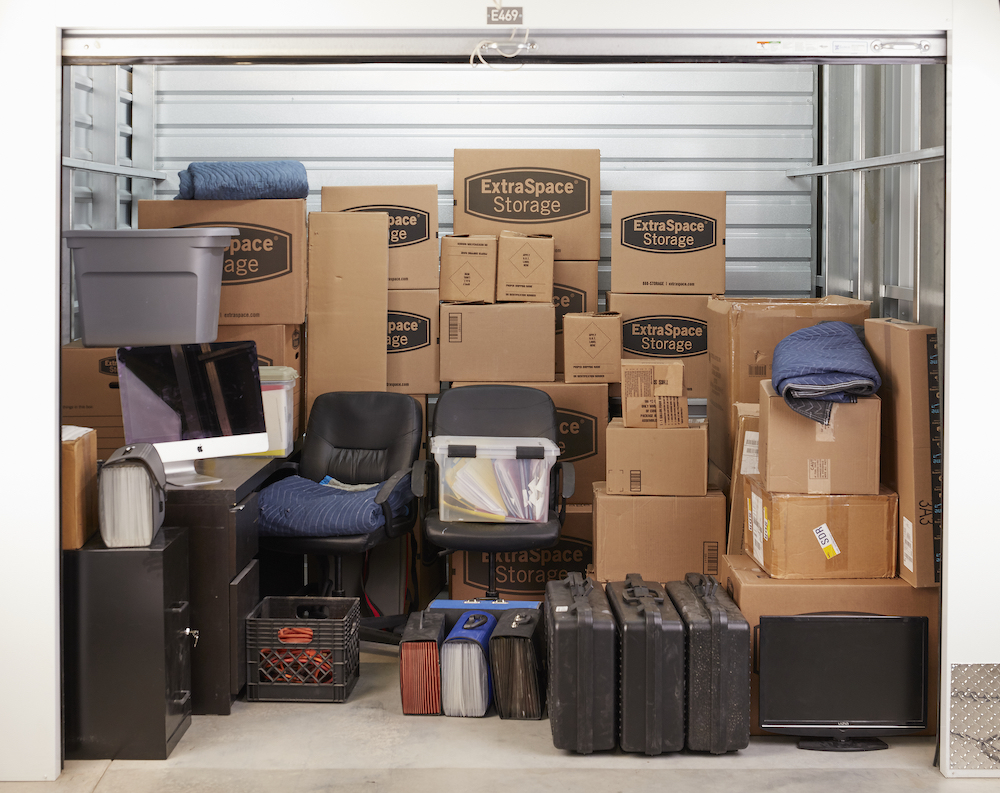Are you running out of room to store your small business’ inventory? Check out these tips for using commercial self storage to implement a more effective inventory organization and management process.
Tips for Business Inventory Management
A thorough inventory management system for your small business helps you know what you have in stock and what products sell well. It also helps your business fill orders accurately, which can lead to higher customer satisfaction. Here’s how to create a simple inventory system using a commercial storage unit.
Know What You Have
The first step in any inventory management and control process is to know what you have. You can write down your storage unit inventory by hand, but this process is time-consuming. Using inventory management apps and software can help your business keep track of products more efficiently. An accurate inventory count helps ensure that what you’re displaying to the public is correct, which can help increase customer trust. Additionally, tracking inventory helps determine your best-sellers, what you need to order more of, and what low-selling products need to be cycled out.
Determine What Kind of Storage You Need
Once you know how large your inventory is, you can figure out the best storage unit size for your needs. Consider the type of inventory you have and determine what business storage unit features will best protect your items. Perhaps you have wood furniture, electronics, or other temperature-sensitive items that need climate-controlled storage. Maybe you have bulky products that would be hard to carry upstairs or fit into an elevator, so you’ll need drive-up access storage to make your storage experience easier. Figuring out the optimal storage solution for your needs will help protect your items and enable you to organize them in a way that makes sense.
Quality Control Your Product
Maintaining the quality of your products when you put your inventory into storage is a key aspect of small business inventory management. Take time to ensure your products are undamaged before putting your inventory inside of a commercial self storage unit, and check that they’re still in good condition when shipping them out to customers. Accurate, working products that arrive in good condition are a great way to build, increase, and maintain your business’ reputation. The more often you’re able to deliver quality products, the more likely you’ll have loyal customers who might recommend your business to others.
Conduct Annual Inventory Audits
Maintaining the accuracy of your product line is a lot easier if you have inventory audits of your commercial storage. Conducting regular audits can assist with physical stock verification and help you identify key issues like inventory shrinkage. Inventory audits can take the form of a physical inventory count or a cycle count, depending on what works best for your business. Physical inventory counts involve counting each item—typically over the course of a few days—giving you exact numbers for all your products. Cycle counts are made by counting small samples of products over time to gradually gain a better sense of what products you have. Both audit methods work toward increasing your inventory accuracy and solving discrepancies.
How to Organize Business Inventory
Organizing your storage unit is an important step in managing business inventory. You’ll be able to access your products more easily, be better prepared to ship those products to customers, and be able to accurately keep track of what is in your inventory. Check out these tips on small business inventory organization.
Prepare your Inventory for Storage
One of the most important steps you can take when managing your inventory is to properly prepare your items for storage. Take the time to clean items as needed, sort your inventory by categories, and properly wrap or package everything to minimize any chance of damage. Use bubble wrap for fragile items like ceramics and glass, and cover bulky items like wooden or upholstered furniture in soft, breathable blankets or sheets. Put smaller items into storage containers to keep them organized. Whether you use boxes or see-through plastic bins, make sure to label everything so you’ll know what’s in each container at a glance. All of these preparations help preserve your inventory and keep it organized in your commercial storage unit so you can easily find what you need.
Map Out your Storage Unit
One way to have an organized small business storage unit is to plot everything out on a self storage floor plan—which helps you know where each object belongs while making your next inventory audit easier. Designate a receiving area for new inventory so you don’t add clutter to the rest of your business storage space. Add freestanding shelving to effectively utilize vertical storage space and avoid any unsafe stacking of products. Group similar items together and determine what products belong on shelves versus what will be placed on the floor. As you map everything out, make sure you don’t overfill your business storage unit—leave pathways throughout the space so you can safely walk between inventory zones and access whatever you need with ease.
Apply the 80/20 Rule
One of the best ways to approach small business inventory management is to apply the 80/20 rule—also known as the Pareto Principle—which says 80% of a business’s revenue typically comes from 20% of its product. In other words, certain items in your self storage inventory will sell more frequently than others. These items should be the most accessible and visible when storing inventory in your business storage unit. Have your best-selling products in an easy-to-reach place to increase efficiency filling orders or restocking inventory. This priority organization method will also help you keep an eye on supplies—each visit to the unit, you’ll be able to immediately see if you have enough product on hand to keep up with customer demand.
***
Looking for a business inventory storage solution? Extra Space Storage has convenient locations across the U.S. that offer a variety of unit sizes for all of your small business storage needs!






